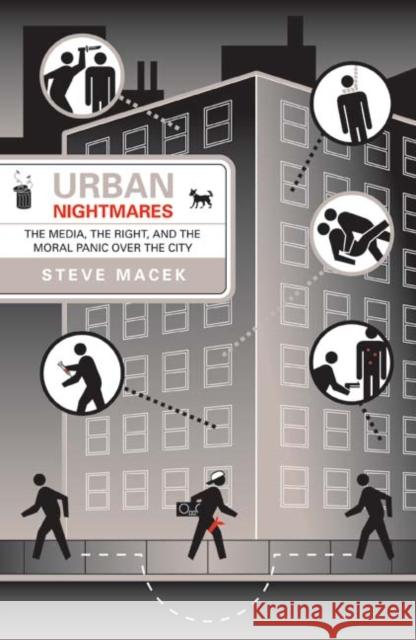Urban Nightmares: The Media, the Right, and the Moral Panic Over the City » książka
Urban Nightmares: The Media, the Right, and the Moral Panic Over the City
ISBN-13: 9780816643615 / Angielski / Miękka / 2006 / 400 str.
Urban Nightmares: The Media, the Right, and the Moral Panic Over the City
ISBN-13: 9780816643615 / Angielski / Miękka / 2006 / 400 str.
(netto: 101,32 VAT: 5%)
Najniższa cena z 30 dni: 101,34
ok. 30 dni roboczych
Bez gwarancji dostawy przed świętami
Darmowa dostawa!
For the past twenty-five years, American culture has been marked by an almost palpable sense of anxiety about the nation's inner cities. Urban America has been consistently depicted as a site of moral decay and uncontrollable violence, held in stark contrast to the allegedly moral, orderly suburbs and exurbs. In Urban Nightmares, Steve Macek documents the scope of these alarmist representations of the city, examines the ideologies that informed them, and exposes the interests they ultimately served. Macek begins by exploring the conservative analysis of the urban poverty, joblessness, and crime that became entrenched during the post-Vietnam War era. Instead of attributing these conditions to broad social and economic conditions, right-wing intellectuals, pundits, policy analysts, and politicians blamed urban problems on the urban underclass itself. This strategy was successful, Macek argues, in deflecting attention from growing income disparities and in helping to secure popular support both for reactionary social policies and the assumptions underwriting them.Turning to the media, Macek explains how Hollywood filmmakers, advertisers, and journalists validated the right-wing discourse on the urban crisis, popularizing its vocabulary. Network television news and weekly news magazines, he shows, covered the inner city and its inhabitants in ways consonant with the right's alarmist discourse. At the same time, Hollywood zealously recycled this antiurban bias in films ranging from genre thrillers like Falling Down and Judgment Night to auteurist efforts like Batman and Seven. Even advertising, Macek argues, mobilized fears of a perilous urban realm to sell products from SUVs to home alarm systems.Published during the second term of an American president whose conservative agenda has been an ongoing disaster for the poor and the working class, Urban Nightmares exposes a divisive legacy of media bias against the cities and their inhabitants and issues a wake-up call to readers to recognize that media images shape what we believe about others' (and our own) place in the real world-and the consequences of those beliefs can be devastating.Steve Macek teaches media studies, urban and suburbia studies, and speech communication at North Central College in Naperville, Illinois.











